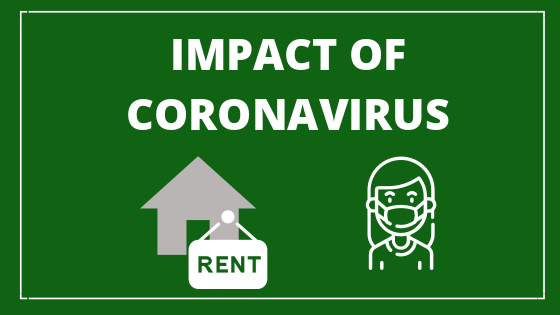
Coronavirus impact – property owners shifting from short to long-term letting
The Covid-19 outbreak has impacted all industries, including the whole of the property sector, but the short-lets market has perhaps been harder hit than most thanks to the restrictions on travel, holidays and business trips. As a result, property owners are shifting from short to long-term letting as the coronavirus hits holiday lets, according to Apropos by DJ Alexander. The property management company says it has first-hand evidence of Airbnb owners moving their properties away from holiday letting to long-term letting as the tourist market collapses.
The firm says it has been approached by hundreds of property owners in the last two weeks, desperate to enter the long-term letting market after wholesale cancellations of their holiday lets following the coronavirus crisis.
This sudden expansion of available property is likely to lead to a fall in property rental prices in the short to medium-term, Apropos believes. David Alexander, joint managing director of Apropos, explained: “We have been inundated with enquiries from Airbnb owners who are wanting to put their property on to the long-term lettings market. They have had all their bookings cancelled and there is little likelihood of an upturn in the market anytime soon, so they are transferring to the long-term market.”
He added: “We have also had owners with properties in the Homes of Multiple Occupation (HMO) market wanting to rent them out as students have left and returned home and there is no clear indication of when they will return so landlords are hoping they can rent these properties out until the market returns.”
In addition, Alexander said there had been a number of tenants giving the statutory one- month notice (regulations which apply in Scotland) and returning to live with their parents or relatives because of the coronavirus outbreak. “The result is that we would usually have around 100 properties available at this time of year and we currently have 350,” he claimed. “The result will, inevitably, be a reduction in rental prices,” Alexander continued. “Over capacity results in lower rents so I can see prices falling over the next few months and, even when the coronavirus crisis is over, I believe that many tenants will be able to negotiate lower rents as the market will remain over-supplied.”
Alexander concluded by saying that he believes in the short to medium-term we will see prices fall until the market stabilises. “The uncertainty of how long this will last is making landlords and investors jittery, but they should realise we will come through this and the world will return to some semblance of normality but until then we need to get through the next few months.”
The short-lets market had experienced a rapid rise in the last 12 years or so, driven forward by Airbnb and various imitators, but this exceptional growth has been severely damaged by the current global pandemic and its very existence could be threatened if the crisis continues on for a big chunk of this year.
The industry’s trade body, the UK Short Term Accommodation Association (STAA), recently sent an open letter to the government calling on it to protect the short-lets market and help it through this crisis. But there is also evidence of Airbnb hosts desperately trying to rejig their portfolios for the long-term market, with London now awash with cheap Airbnb listings as the global tourism
industry faces huge challenges to stay afloat.
For an industry that has largely been on the up – despite plenty of controversy and criticism – the current outbreak represents the biggest hurdle yet for a market which has been so successful at disrupting the status quo in recent years. In positive short-let news, Airbnb and other short-let platforms have partnered with their hosts to provide healthcare providers, relief workers and first responders with places to stay during the Covid-19 pandemic. Meanwhile, the STAA has launched a scheme to offer free accommodation to London’s NHS key workers. Together with a number of partners who usually operate in the short-let market, the scheme, called ‘NHS Homes’, will provide free accommodation and additional services to NHS staff to enable them to stay near the
hospitals they work in during the outbreak.
UnderTheDoormat launched the original scheme earlier last week. The high level of interest shown in the scheme led its chief executive, Merilee Karr, who is also the chair of the STAA, to turn it into an industry-wide solution, with the STAA providing one point of contact for the NHS to access homes across many companies in the sector. The NHS Homes scheme, which can be found at nhshomes.co.uk, was officially launched last Friday with six partners: UnderTheDoormat, Laundryheap, onefinestay, Homes ; Villas by Marriott International, Altido and LoveHomeSwap.
“The original scheme has only been running for a couple of days but already demand is outstripping supply” Karr commented. “We have had an overwhelming response and we need more homes to help more people across the country. We’re currently in the process of hosting staff who are working at a number of hospitals in London including the Royal London, King’s College, St Mary’s, Guy’s, St George’s, Charing Cross and Chelsea Westminster.